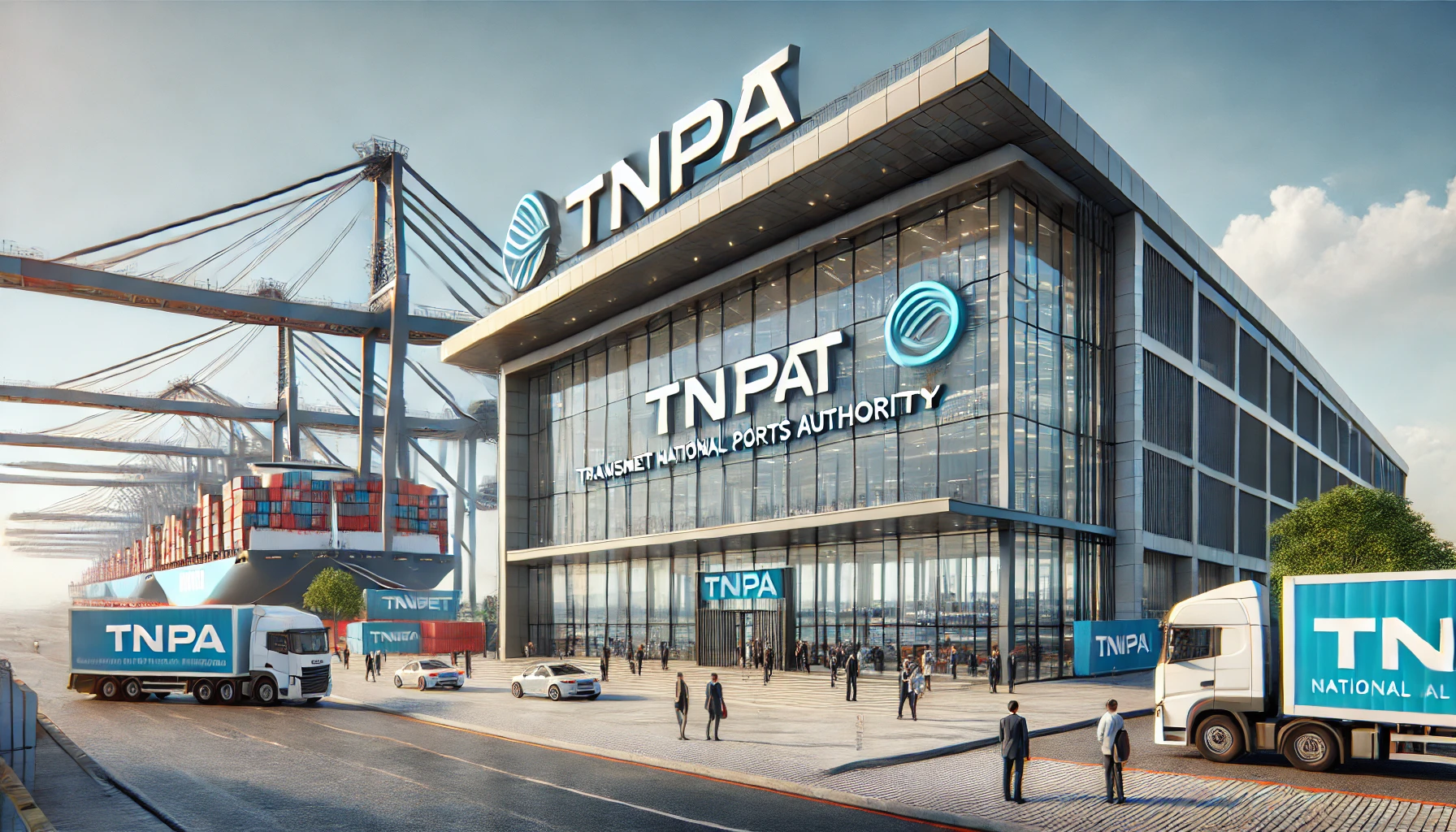Transnet Advances Growth Strategy with RFP for Liquid Bulk Terminal at Port of Ngqura
The call for proposals is rooted in Transnet’s broader Reinvent for Growth Strategy, which focuses on operational transformation, infrastructure modernization, and private sector collaboration.

- Country:
- India
In a strategic move to enhance South Africa’s maritime infrastructure and boost regional energy logistics, the Transnet National Ports Authority (TNPA) has issued a Request for Proposals (RFP) to appoint a qualified Terminal Operator for a new liquid bulk terminal at the Port of Ngqura. The RFP marks a transformative step in the ongoing relocation of the liquid bulk tank farm from the Port of Port Elizabeth to Ngqura, aligning with long-term port development frameworks and national economic goals.
A Key Pillar in Transnet’s Reinvent for Growth Strategy
The call for proposals is rooted in Transnet’s broader Reinvent for Growth Strategy, which focuses on operational transformation, infrastructure modernization, and private sector collaboration. The selected operator will be entrusted with a 25-year concession to fund, design, develop, construct, operate, maintain, and eventually transfer the new terminal to TNPA. This long-term public-private partnership model reflects TNPA’s intent to ensure sustainable development while unlocking investment potential in the Eastern Cape region.
Dr. Dineo Mazibuko, Acting General Manager for Commercial Services at TNPA, emphasized the strategic importance of the development, stating, “The liquid bulk terminal demonstrates TNPA's commitment to relocate these operations to Ngqura, fostering both regional and national economic growth, while placing sustainability at the core of port development.”
What the RFP Covers
The proposed facility will be a comprehensive liquid bulk terminal, expected to include:
-
Liquid bulk storage tanks capable of accommodating a range of chemical and fuel commodities.
-
Road tanker loading gantries to facilitate the efficient movement of goods inland.
-
Pipeline infrastructure connecting the terminal to port berths and adjacent facilities.
-
Support infrastructure including control rooms, safety systems, and environmental protection mechanisms.
The terminal will be located within the Liquid Bulk Precinct of the Port of Ngqura—strategically positioned at the eastern end of the back-of-port area adjacent to the N2 highway, offering seamless road connectivity for inland distribution.
Laying the Groundwork for Future Energy Infrastructure
The Liquid Bulk Precinct is being positioned as a key energy logistics hub, with future developments earmarked for handling Liquified Natural Gas (LNG) and other energy-related commodities. The inclusion of LNG in future port planning is a forward-looking move aligned with South Africa’s ambitions to diversify its energy mix and transition to cleaner fuels.
This development also resonates with global energy trends, where seaports are increasingly being adapted to handle new-generation fuels, ensuring compatibility with international shipping standards and energy security imperatives.
Environmental Excellence and Regulatory Compliance
Significantly, the Port of Ngqura is South Africa’s only commercial port with an environmental authorisation for its operations. This green credential reinforces TNPA’s commitment to sustainable port development.
As such, the appointed terminal operator will be required to:
-
Adhere to strict environmental management plans, ensuring minimal ecological disruption.
-
Maintain high standards of safety and regulatory compliance across operations.
-
Implement green technologies where feasible, to preserve the port’s low-carbon status.
The RFP underscores that environmental sustainability will be a non-negotiable parameter in the operator’s performance obligations.
Economic and Strategic Significance
The development of the liquid bulk terminal is not merely a relocation exercise—it is a key piece in the puzzle of decongesting Port Elizabeth, unlocking Ngqura’s capacity, and elevating the Eastern Cape as a high-functioning logistics corridor. It is also expected to:
-
Stimulate local job creation and supplier development, particularly in engineering, logistics, and environmental services.
-
Enhance South Africa’s global competitiveness in the trade of fuels, chemicals, and related products.
-
Strengthen private sector participation in national infrastructure through concession-based models.
Call to the Private Sector
The TNPA invites capable and experienced terminal operators to respond to the RFP with proposals that not only meet technical and commercial expectations but also align with South Africa’s socioeconomic, environmental, and developmental priorities.
This initiative continues TNPA’s legacy of modernizing port infrastructure and creating long-term value for the economy, communities, and investors alike.










